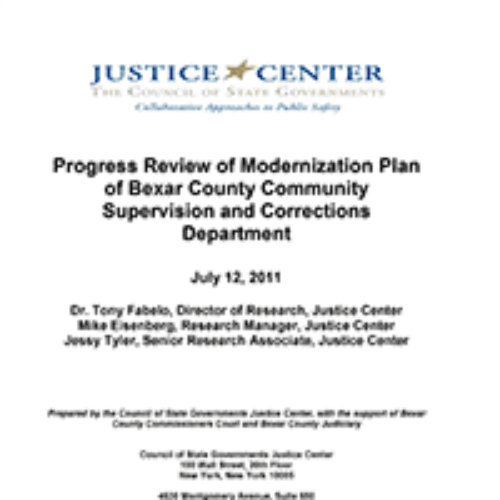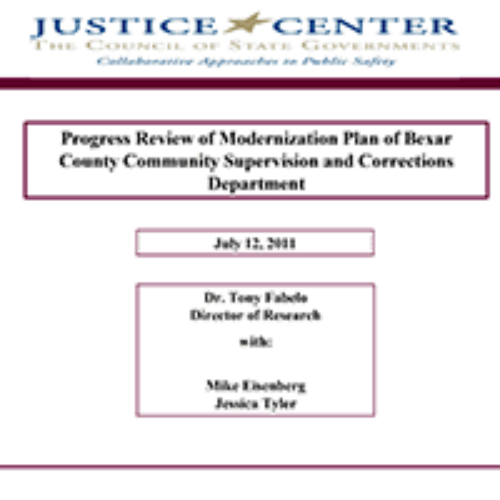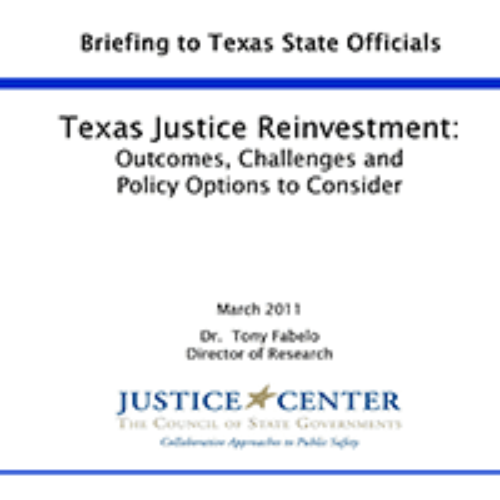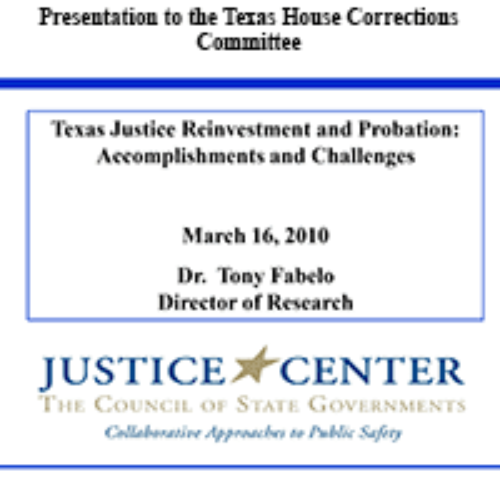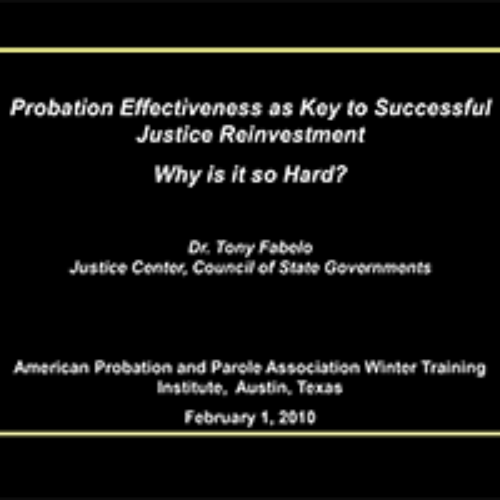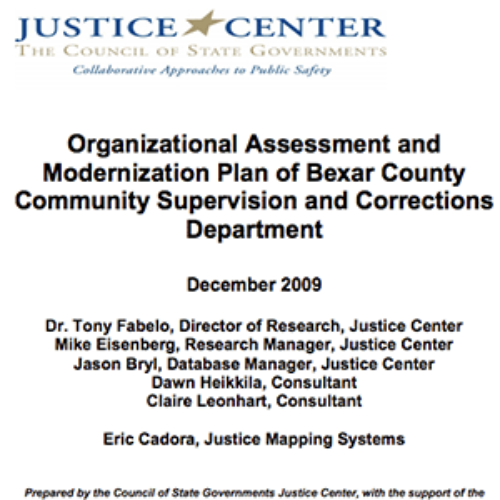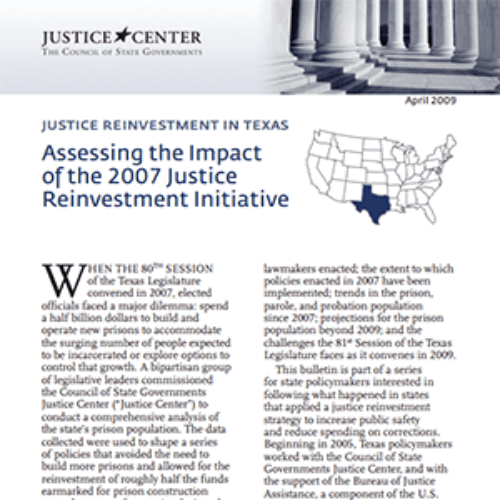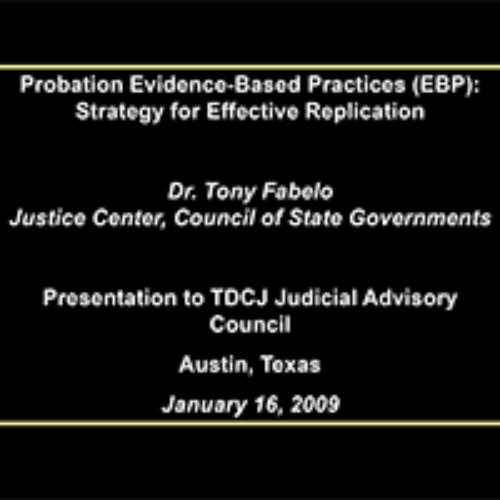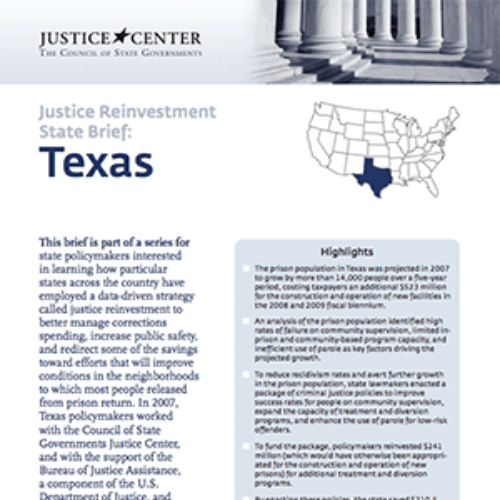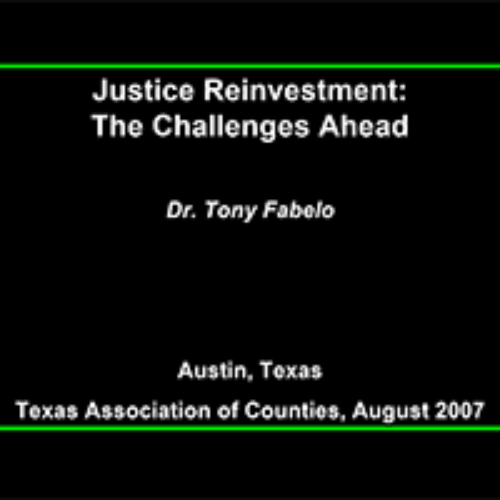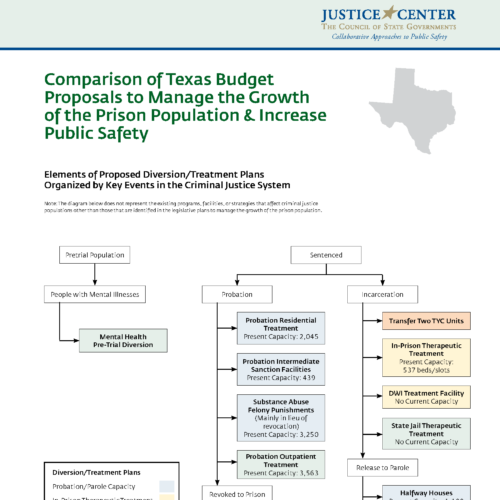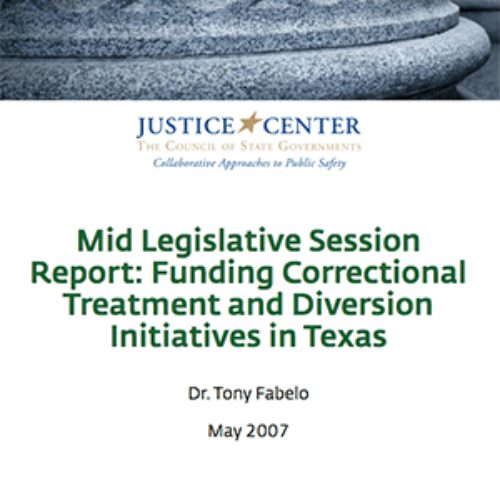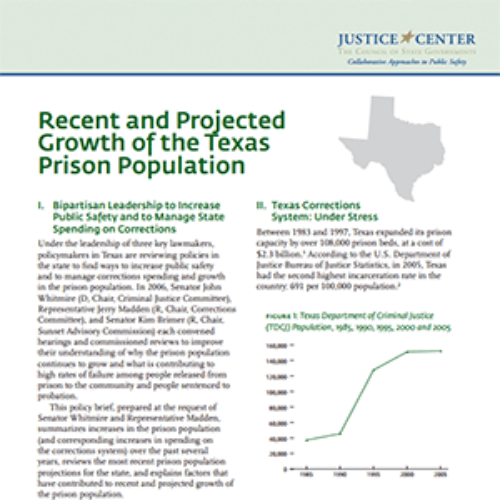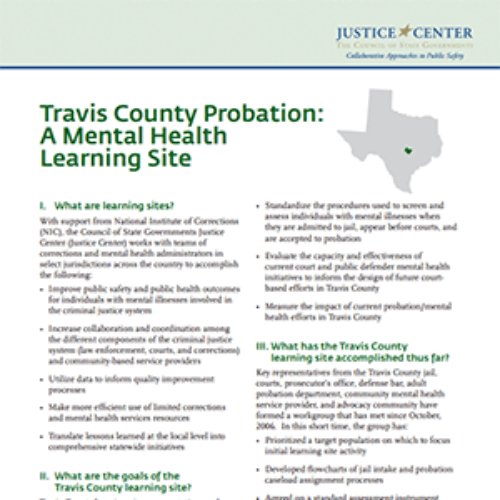Justice Reinvestment in Texas
The Problem
In 2007, Texas was projected to need 17,000 additional prison beds by 2012, at an expected cost of $2 billion. Between 1997 and 2006, the number of people revoked to prison from probation increased 18 percent. More than 2,000 people were awaiting placement for substance use and mental health treatment in 2006, and parole grant rates were much lower than the parole board’s own guidelines.
How Justice Reinvestment Helped
In 2006 and 2007, the CSG Justice Center worked with Texas state leaders to analyze criminal justice system data, interview stakeholders, and develop data-driven policy options designed to reduce corrections spending and increase public safety.
Justice Reinvestment policies were adopted in the 2008–2009 biennial budget. The framework included several policies designed to address these challenges, such as
- Increasing treatment capacity in the prison system by 5,200 program slots for substance use disorder treatment (outpatient, in-prison, and post-release) and mental health treatment; and
- Expanding diversion options in the probation and parole system by 4,500 beds for technical violations of supervision, transitional treatment, and substance use disorder treatment.
Implementation and Impacts
These efforts and additional criminal justice reforms resulted in saving and averting more than $1.6 billion in prison construction and operating costs. Texas’s prison population has fallen by more than 34,000 people since 2007, and the state has closed 16 prison facilities.













